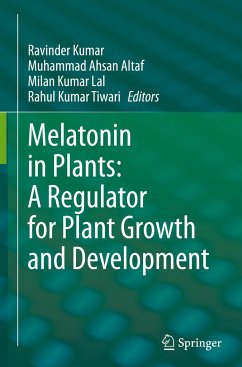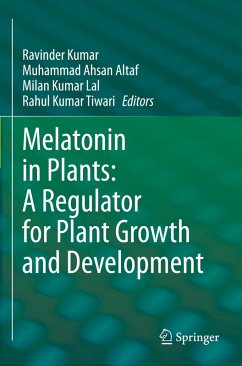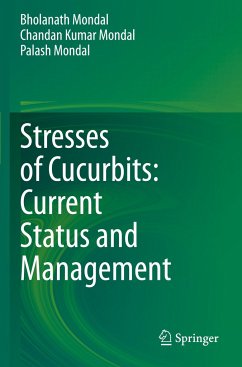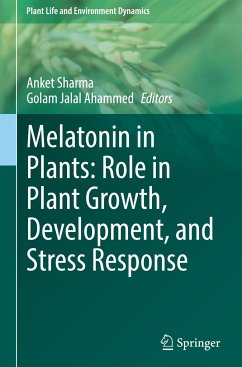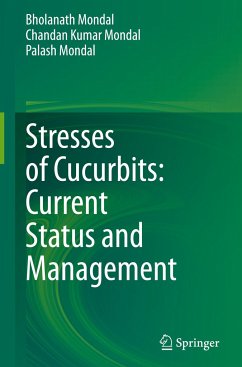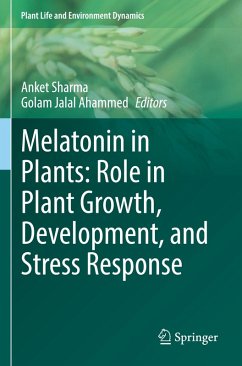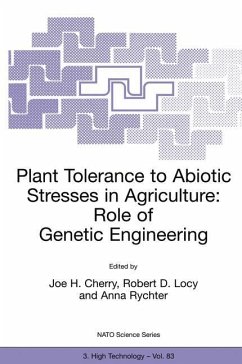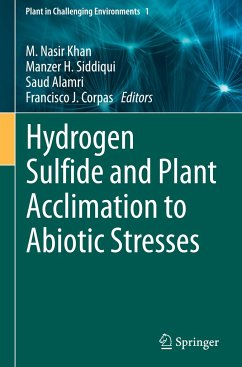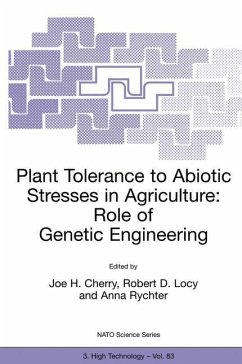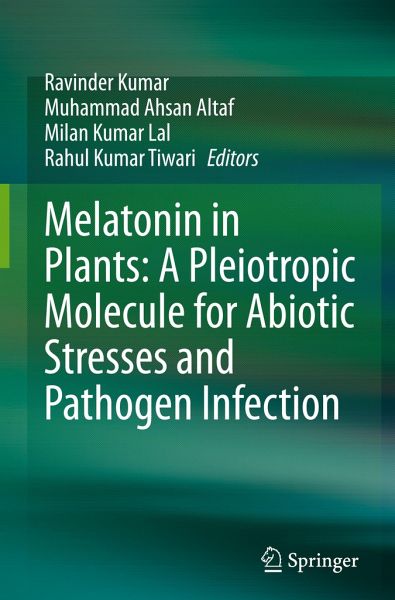
Melatonin in Plants: A Pleiotropic Molecule for Abiotic Stresses and Pathogen Infection

PAYBACK Punkte
68 °P sammeln!
This edited book highlights the multifunctional role of the ubiquitous molecule, melatonin in crop plants. The major focus of this edition is to provide a comprehensive insight into the key focus is on Melatonin mediated alleviation of abiotic stresses and pathogens infection. The inception of melatonin as an animal hormone and the subsequent discovery of its multifaceted function in the animal system has revolutionized the research on this penial hormone. During the last decade, the discovery, quantification and functional studies of melatonin as phytohormone has emerged at a rapid pace. Rece...
This edited book highlights the multifunctional role of the ubiquitous molecule, melatonin in crop plants. The major focus of this edition is to provide a comprehensive insight into the key focus is on Melatonin mediated alleviation of abiotic stresses and pathogens infection. The inception of melatonin as an animal hormone and the subsequent discovery of its multifaceted function in the animal system has revolutionized the research on this penial hormone. During the last decade, the discovery, quantification and functional studies of melatonin as phytohormone has emerged at a rapid pace. Recently, this phyto-protectant has become an integral component of lab and field-based research on the mitigation of adverse effects of climate-driven abiotic stresses and postharvest biology and technology.
The book explores melatonin mediated management of various abiotic stresses such as drought, salinity, heat and cold temperature. The book also focuses on role of melatonin in heavy metal stress, viral, bacterial, and fungal diseases, and, also contains chapter on melatonin facilitated nutrient use efficiency in plants.
This book is of interest to postharvest industries, horticulturists, scientists, researchers, and students.
The book explores melatonin mediated management of various abiotic stresses such as drought, salinity, heat and cold temperature. The book also focuses on role of melatonin in heavy metal stress, viral, bacterial, and fungal diseases, and, also contains chapter on melatonin facilitated nutrient use efficiency in plants.
This book is of interest to postharvest industries, horticulturists, scientists, researchers, and students.




